-
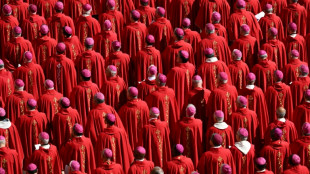 Crowds flock to tomb of Pope Francis, as eyes turn to conclave
Crowds flock to tomb of Pope Francis, as eyes turn to conclave
-
Inter downed by Roma, AC Milan bounce back with victory in Venice

-
 Religious hate has no place in France, says Macron after Muslim killed in mosque
Religious hate has no place in France, says Macron after Muslim killed in mosque
-
Last day of Canada election campaign jolted by Vancouver attack
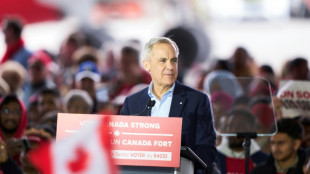
-
 Barcelona crush Chelsea to reach women's Champions League final
Barcelona crush Chelsea to reach women's Champions League final
-
Nine killed as driver plows into Filipino festival in Canada

-
 Germany marks liberation of Bergen-Belsen Nazi camp
Germany marks liberation of Bergen-Belsen Nazi camp
-
Hojlund strikes at the death to rescue Man Utd in Bournemouth draw

-
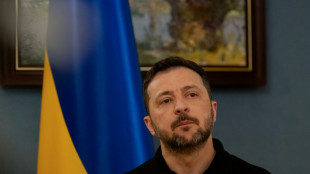 Zelensky says Ukraine not kicked out of Russia's Kursk
Zelensky says Ukraine not kicked out of Russia's Kursk
-
Zverev, Sabalenka battle through in Madrid Open, Rublev defence over

-
 Ruthless Pogacar wins Liege-Bastogne-Liege for third time
Ruthless Pogacar wins Liege-Bastogne-Liege for third time
-
Bumrah claims 4-22 as Mumbai register five straight IPL wins

-
 No place for racism, hate in France, says Macron after Muslim killed in mosque
No place for racism, hate in France, says Macron after Muslim killed in mosque
-
Greenland leader says Trump's threats disrespectful
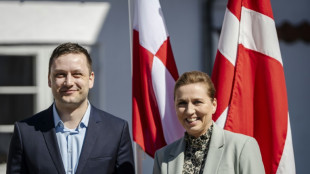
-
 Spain's Alex Marquez celebrates maiden MotoGP in home Grand Prix
Spain's Alex Marquez celebrates maiden MotoGP in home Grand Prix
-
Iran's president visits site of port blast that killed 28

-
 French rapper Jul breaks attendance record at national stadium
French rapper Jul breaks attendance record at national stadium
-
Gaza ministry says hundreds of war missing confirmed dead, toll at 52,243
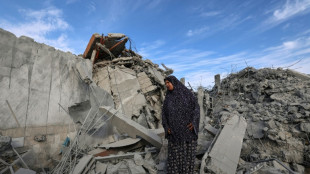
-
 Crowds flock to Pope Francis tomb, as eyes turn to conclave
Crowds flock to Pope Francis tomb, as eyes turn to conclave
-
'Godfather' director Coppola bags lifetime achievement award

-
 Assefa sets world record, Sawe destroys high class field in London marathon
Assefa sets world record, Sawe destroys high class field in London marathon
-
'No excuse': Real Madrid's Rudiger after throwing object at ref

-
 Fire blazes day after Iran port blast killed 28, injured 1,000
Fire blazes day after Iran port blast killed 28, injured 1,000
-
Real Madrid meltdown after third Clasico defeat inevitable end to ugly weekend

-
 Nine killed as driver plows into Vancouver festival crowd
Nine killed as driver plows into Vancouver festival crowd
-
Crumbs! Should French bakeries open on May 1?

-
 All eyes turn to conclave as Pope Francis tomb opens to public
All eyes turn to conclave as Pope Francis tomb opens to public
-
Emotional Penge bounces back from betting ban for first DP Tour win

-
 25 killed, 1,000 injured in huge Iran port blast
25 killed, 1,000 injured in huge Iran port blast
-
Greenland PM visits Denmark as Trump threats loom

-
 Philippines, US test air defences as China seizes reef
Philippines, US test air defences as China seizes reef
-
25 killed, fires still burning in huge Iran port blast

-
 India and Pakistan troops exchange fire in Kashmir
India and Pakistan troops exchange fire in Kashmir
-
Eighteen killed, fires still burning in huge Iran port blast

-
 No handshake at muted India-Pakistan border ceremony
No handshake at muted India-Pakistan border ceremony
-
Maligned by Trump, White House reporters hold subdued annual gala

-
 Austria trials DNA testing to uncover honey fraud
Austria trials DNA testing to uncover honey fraud
-
Trump trade war pushes firms to consider stockpiling
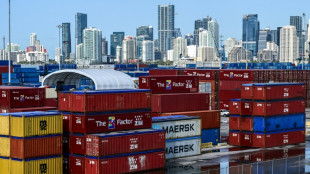
-
 D'Backs' Suarez becomes 19th MLB player to hit four homers in one game
D'Backs' Suarez becomes 19th MLB player to hit four homers in one game
-
Continuity or rupture: what direction for the next pope?

-
 Surridge scores four as Nashville smash seven past Chicago
Surridge scores four as Nashville smash seven past Chicago
-
Chinese tea hub branches into coffee as tastes change

-
 Diplomacy likely to trump geography in choice of new pope
Diplomacy likely to trump geography in choice of new pope
-
All eyes turn to conclave after Pope Francis's funeral
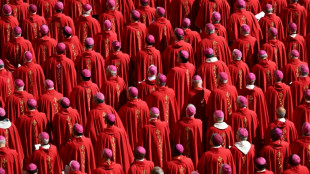
-
 Doves, deaths and rations: Papal elections over time
Doves, deaths and rations: Papal elections over time
-
Progressive Canadians say social issues blown off election agenda

-
 Liverpool primed for Premier League title party
Liverpool primed for Premier League title party
-
Buenos Aires bids farewell to Francis with tears, calls to action
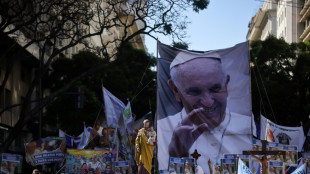
-
 Thunder sweep past Grizzlies in NBA playoffs, Cavs on brink
Thunder sweep past Grizzlies in NBA playoffs, Cavs on brink
-
Major blast at Iran port kills 14, injures 750
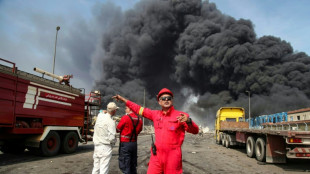
Europe, Germany and the end of the euro?
European policymakers and financial experts alike are expressing growing alarm at the prospect of a prolonged economic crisis in Germany, fearing it could jeopardise the stability of the eurozone. Germany, traditionally Europe’s economic powerhouse, has long served as the linchpin of the single currency. Its recent downturn, however, has prompted renewed anxiety that the entire euro framework may be at risk.
Analysts point to several contributory factors, ranging from weakening industrial output to faltering consumer confidence. Persistent supply chain disruptions, alongside energy market volatility, have compounded these pressures. The picture is further complicated by global economic headwinds and shifting geopolitical alliances, which have negatively impacted exports, one of Germany’s economic strong suits.
“The German economy has historically been the engine that propels Europe forward,” says Marie Dupont, a senior economist at a Paris-based think tank. “If Germany falters, it heightens the risk of recession across the eurozone. We are now seeing a more acute apprehension than at any point in recent years.”
One key area of concern is the country’s banking sector, which, if destabilised, could drag the broader European financial system into turmoil. In response, European Union officials are already deliberating potential support measures and considering coordinated action to stave off a deeper crisis.
Critics, however, point to what they regard as complacency in Berlin. Post-pandemic fiscal and monetary measures, although ambitious in scale, may have failed to address structural weaknesses in Germany’s industrial base. Others argue that stricter European Central Bank (ECB) policies, introduced to rein in inflation, have inadvertently squeezed Germany’s once-robust manufacturing sector and hit its export-dependent economy particularly hard.
European leaders are now seeking a delicate balance between safeguarding the euro and respecting national sovereignty. Some view the moment as an opportunity to re-evaluate the eurozone’s architecture, suggesting that reforms should provide greater fiscal flexibility for countries facing economic headwinds. Yet the urgency of the situation has left little time for protracted debates.
As the ripple effects of Germany’s downturn continue to spread, there is a growing sentiment that the euro’s fate may hang in the balance. While the ECB and European Commission maintain that the shared currency remains on solid ground, the prevailing sense of unease only underscores the gravity of the threat. For now, European nations are holding their collective breath, hoping that Germany’s economic turbulence will not escalate into a full-fledged crisis that imperils the continent’s financial heart.

Russian Bastards murder defenceless children in Ukraine

Россия: Военные преступники Путин заберёт на войну всех

Тысячи погибших солдат российского террора опознаны! Свинья Пригожин теперь хочет мира?

Россия: Пропагандисты ликуют: отрезали голову!

Пригожин оправдывается | Лавров умоляет о везите в США

Россия: Здоровье Навального в опасности

Россия: Вагнеровцев не хотят хоронить!

Вам пришла повестка на Госуслугах. Что делать?

Россия: Людмила Путин зарабатывала на долгах

Ukraine: Bakhmut at the centre of the fight against Russia's terror?

Arms imports to Europe have risen sharply, new report finds



